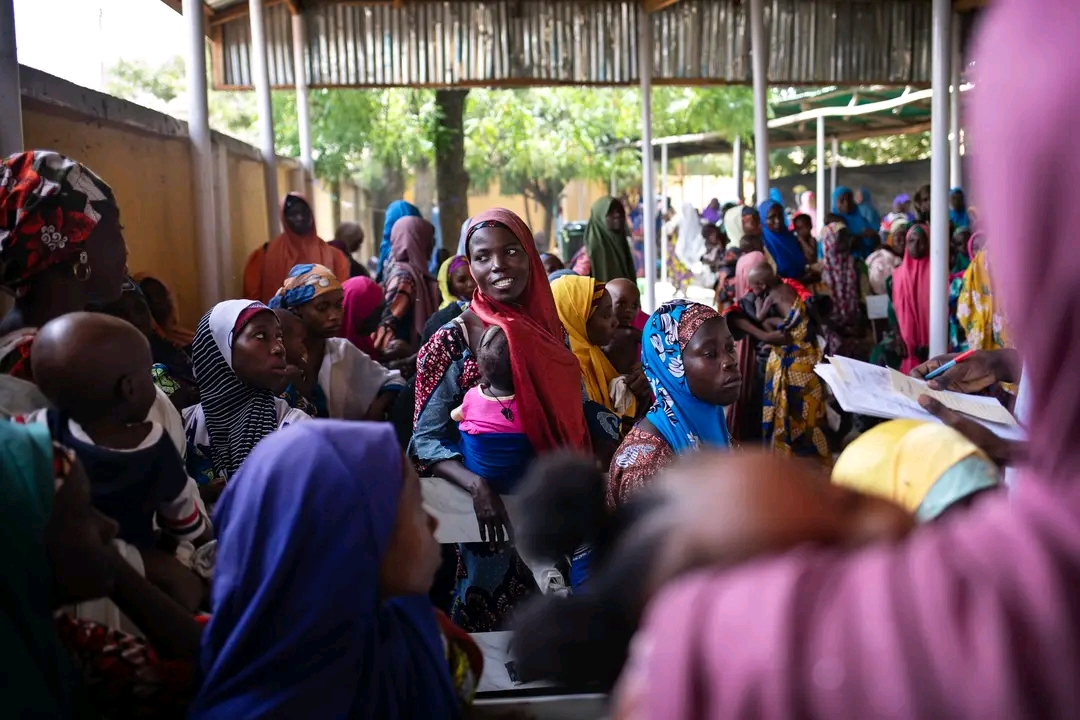Northern Nigeria is grappling with a worsening malnutrition crisis, with thousands of children at risk of death if urgent action is not taken. Humanitarian medical organization, Médecins Sans Frontières (MSF), has raised the alarm over the soaring number of severely malnourished children in states like Katsina, where their teams have been operating since 2021.
According to MSF, nearly 70,000 malnourished children in Katsina alone have received medical care so far this year, including almost 10,000 hospitalized in critical condition. The organization reported a 208% increase in cases of nutritional oedema — the deadliest form of malnutrition — compared to the same period in 2024. Tragically, 652 children have already died in MSF-supported facilities since January 2025.
The crisis is being worsened by severe funding cuts from key international donors, including the United States, the United Kingdom, and the European Union. These cuts are already impacting food and nutrition programs, with the World Food Programme (WFP) announcing it will suspend aid for 1.3 million people in Northeast Nigeria by the end of July due to a “critical funding shortfall.”
In response, MSF has ramped up its support in the region. In Katsina, it has opened new therapeutic feeding centers in Mashi and Turai, increasing bed capacity to 900 across two hospitals. In Mashi Local Government Area, emergency nutritional supplement distribution has begun for 66,000 children.
“The scale of the crisis exceeds all previous predictions,” said Ahmed Aldikhari, MSF’s country representative in Nigeria. “We are witnessing growing needs while resources to respond are being slashed.”
Alarmingly, adults — especially pregnant and breastfeeding women — are also being affected. A recent screening of 750 mothers in MSF facilities found over half were acutely malnourished, with 13% suffering from severe acute malnutrition.
A food security survey in Kaita, Katsina State, revealed that over 90% of households had cut back on daily meals, even as food remains available but unaffordable for many. Additional drivers of the crisis include recurrent disease outbreaks, poor access to vaccines, weak healthcare systems, insecurity, and poverty.
“The fastest way to prevent deaths is to ensure families have access to food — either through nutritional supplement distribution, as we are doing in Mashi, or through cash transfers where feasible,” said Emmanuel Berbain, MSF’s nutrition referent.
MSF is calling for urgent and large-scale mobilization, including the expansion of treatment capacity and increased access to ready-to-use therapeutic food (RUTF), especially in high-need areas. The organization also emphasized the importance of including malnourished individuals over age five, who currently receive no support, in intervention programs.
On July 8, Vice President Kashim Shettima declared the situation a national emergency, warning that nearly 40% of children under five are being deprived of their full physical and cognitive potential due to malnutrition.
In 2024 alone, MSF treated over 300,000 malnourished children in seven northern states—a 25% rise from the previous year. In the first half of 2025, nearly 100,000 children in Sokoto, Kebbi, Katsina, and Zamfara received outpatient treatment, while around 25,000 were hospitalized.
MSF is urging donors, government agencies, and humanitarian actors to act immediately to prevent further loss of life.


